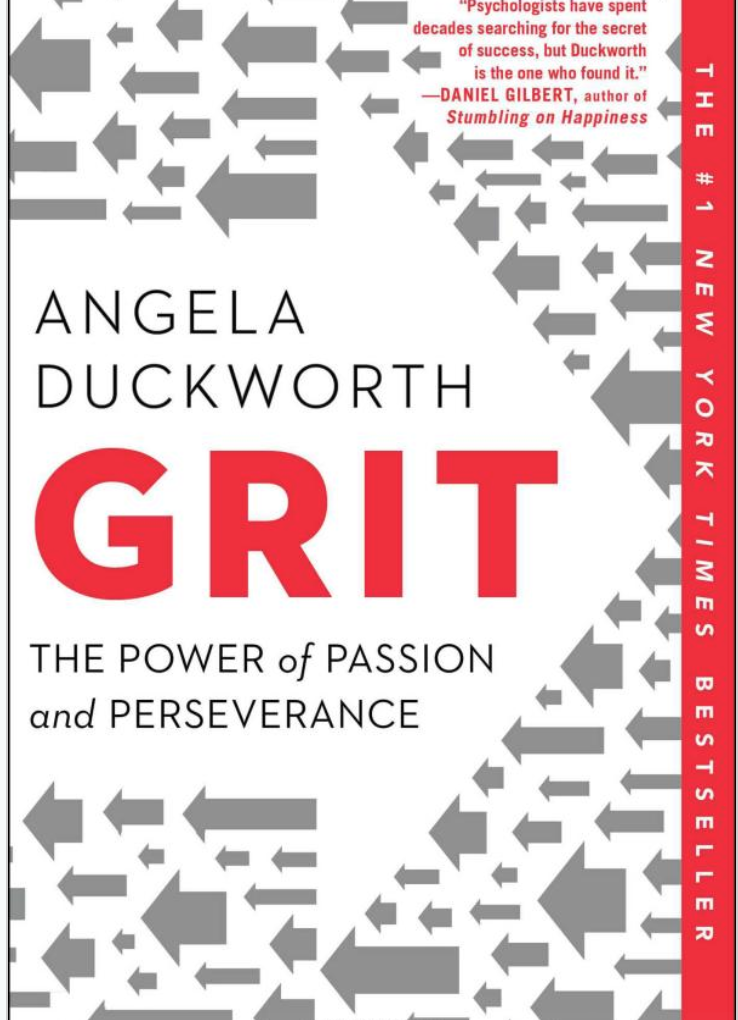Book review: Grit
 ChatGPT
ChatGPT Throughout Grit: The Power of Passion and Perseverance (Scribner 2016), Angela Duckworth examines why some people persevere and others don’t.
Throughout Grit: The Power of Passion and Perseverance (Scribner 2016), Angela Duckworth examines why some people persevere and others don’t.
Angela Duckworth, a professor of psychiatry at the University of Pennsylvania, studies grit and other attributes that predict success in life. She wrote a fascinating book on the subject.
She begins by relating how her father regularly reminded her that she was “no genius.” Later, she was awarded the MacArthur Fellowship, dubbed the “genius grant.” She concluded, “A girl who is told repeatedly that she’s no genius ends up winning an award for being one. The award goes to her because she has discovered that what we eventually accomplish may depend more on our passions and perseverance than on our innate talent” (x).
Duckworth began her study of grit by looking at the admissions and enrollment at West Point. More than 14,000 people begin the application process. Only 1,200 are ultimately admitted. Of those who are accepted, one in five will drop out, many in the initial stages (3). Duckworth studied this phenomenon. Clearly, students who are admitted to West Point are intelligent, talented, and universally recognized as leaders. But scores on SAT exams or GPAs in high school failed to predict who would quit and who would persevere. Duckworth eventually developed the “Grit Scale” (9). By having entering cadets take the Grit Scale, she was able to predict, much more accurately, their success.
Why do some athletes win medals and others fall short? Why do some musicians master their instrument and others remain mediocre? Duckworth is particularly interested as to how these principles relate to children’s success at school. She also includes a chapter on parenting, which contains practical advice for helping children succeed.
One of the values of this book is the various psychological studies Duckworth either conducted or cites that provide a glimpse into the field of human success. She also interviews numerous people such as Steve Young of the San Francisco 49ers, the coach of the Seattle Seahawks and actor Will Smith. Duckworth also examines well-known institutions such as West Point and the National Spelling Bee.
Duckworth provides a formula that states that “talent times effort = skill” and “skill times effort = achievement” (42). She notes that talent comes naturally whereas skill is developed after hours and hours of practice (51). She includes an interesting discussion of goals and how they can drive people to success. She suggests there are three levels of goals. She cites Warren Buffet who suggested listing our top 25 goals. Then he advises to identify our top five goals. Then he recommends that we purposefully ignore the bottom twenty (66).
Duckworth also claims that the higher the purpose people have, the more grit they will demonstrate (147). She notes that adults who felt their work was a calling missed one-third as many work days as those who viewed their work merely as a job (150). She also notes that people whose goals are both for themselves and others tend to outperform those who either work solely for themselves or for others (160).
An important aspect of grittiness is whether people have a fixed mindset or a growth mindset (181). A fixed mindset assumes people are the way they are for life, so there is little reason to try to change. A growth mindset, on the other hand, presumes things can change, so determination and perseverance are worth the effort. Duckworth notes that experiencing struggle can lead either to hope or hopelessness. It depends on how the person views the struggle.
I found this book interesting. We all know instinctively that perseverance is good. But Duckworth demonstrates that grittiness may actually get you farther than merely having a high IQ or plenty of natural talent. Clearly, there is more to success than simply being unwilling to quit, as she points out.
Duckworth acknowledges several times that her studies have not been longitudinal enough to make definitive statements yet. There are also some “chicken or the egg” situations. I appreciate her candor in that regard. I like her challenge on “naturals,” as if some people are successful with little or no effort and others must work extremely hard even to be mediocre. Her book does not offer an easy road to success, but it does offer hope that, if one is willing to pay the price, they, too, can achieve success in life.
Whether you are interested in your own success or you are concerned about helping others, this is a great book to read and contemplate.
Photo source: istock
| Richard Blackaby is the president of Blackaby Ministries International and lives in Georgia. He travels internationally speaking on spiritual leadership in the home, church, and marketplace as well as on spiritual awakening, experiencing God, and the Christian life. Richard regularly ministers to Christian CEOs and business leaders. He has written or co-authored 33 books . This article was first published on RichardBlackaby.com. Used with permission from Blackaby Ministries International. Learn More » |
More on Book Reviews
- Book review: Building a Storybrand (by Richard Blackaby)
- Book review: He Leadeth Me (by Richard Blackaby)
- Book review: Rare Leadership: 4 Uncommon Habits for Increasing Trust, Joy, and Engagement in the People You Lead (by Richard Blackaby)
- Book review: Shaping History Through Prayer and Fasting, by Derek Prince (by Richard Blackaby)


